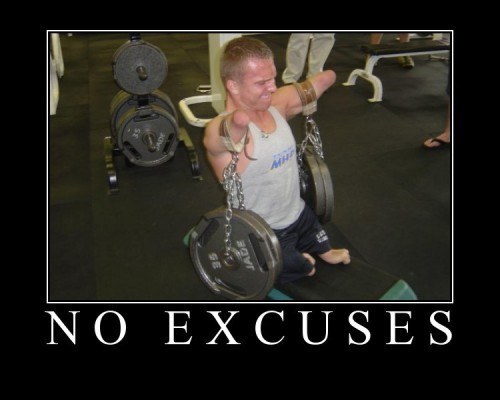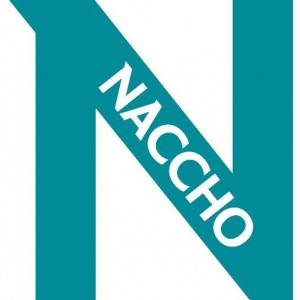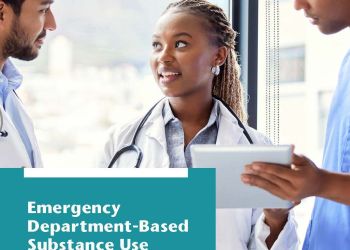The author of this post is Nic Wyatt, NACCHO Health & Disability Fellow.
“Specially-Abled Person Walks Down Aisle,” “Disabled Person Succeeds Against All Odds,” “Student Asks Special Needs Student to Prom,” these fictitious article headlines exemplify the concept of inspiration porn that is becoming widespread in American society. Inspiration porn is a term coined by the late disability activist and writer, Stella Young, in 2014. In Young’s TEDxSydney talk, she describes it as the objectification of disabled people and their experiences to the benefit of non-disabled people. Understanding the harms of inspiration porn and how it contributes to ableism is integral to local health department (LHD) efforts to improve and protect the health of all community residents.
What’s Wrong with “Good” News?
Many examples of inspiration porn are shared as heartwarming news stories. Problems arise when care is not taken to how the story is framed and presented to the public. There are different kinds of inspiration porn commonly shared by media platforms.
- When a disabled person is celebrated for participating in instrumental activities of daily living. These are acts considered necessary for independence (e.g., grocery shopping, running errands, or household chores)
- When a disabled person “overcomes” their disability to engage in life activities
- When a disabled person is given assistance from someone without a disability and the non-disabled person is praised for their humanitarian act

In Young’s own experience, she talks about being approached by strangers telling her she was brave or inspirational as she was going about her day. She stresses that inspiration porn suggests having disabilities is pitiable. It is often used to encourage and remind non-disabled people that things could be worse, they could be disabled.
Stella Young explains that praising disabled people for existing and engaging in normal life activities strengthens the belief that disability is not normal, that it is something that can and should be overcome, and that disabled people cannot live independent and satisfying lives while remaining disabled. In circulating stories about disabilities, authors regularly reference the bravery and courage a disabled person possesses for living without centering their experiences or any context that may contribute to their experience of disability. Disabled people are a means, an object, used to produce a feel-good story. That is the harm of inspiration porn.
In circulating stories about disabilities, authors regularly reference the bravery and courage a disabled person possesses for living without centering their experiences or any context that may contribute to their experience of disability. Disabled people are a means, an object, used to produce a feel-good story. That is the harm of inspiration porn.
Disabled people do not exist as foils for non-disabled people and their presentation as such further dehumanizes them. As disabled people are othered, stigma and social isolation may increase, resulting in worsening health outcomes. Inspiration porn may create and maintain stereotypes pressuring success from disabled people that may damage self-esteem and speak over the voices of disabled people. There are many potential impacts of inspiration porn but how should it be avoided?
Doing the Least Harm
When sharing stories about disabled people, disability communities, or work involving these groups, consider a few things: Who benefits from the story being told and what is its purpose? Do disabled people have a voice in the story? What does this story say about other disabled people?
Who benefits?
If it is important to share a story about a disabled individual, who will gain something from their story? Are the efforts of the LHDs the priority of the story? There is a difference between a story detailing the successes of a public health intervention and one emphasizing the efforts of LHDs. If the story only covers how well LHDs are supporting their disabled community members, much of the story is lost.
A health department’s efforts to better the quality of life of people with disabilities is incredibly important, but context and structures contributing to the hardships of a disability experience should be acknowledged. As disability is not strictly an individual experience, societal factors may play a role in its severity and salience depending on the context. Recognizing this helps to prevent unfair blame and judgement placed on disabled people.
Whose voices are heard?
When publishing stories around disability, are quotes from disabled people included? Have disabled people been able to weigh in on the story before it was published? Have they played an active role in its development or are they contributors? If the story is highlighting a success, quotes from disabled people help ensure it is their story, not just a story about their “saviors” helping them. LHDs can facilitate significant social and structural change by ensuring the concerns of marginalized groups are heard and by being transparent when those groups are a part of their development processes.
What does this say about other disabled people?
Be mindful of language use and framing while sharing stories about disabled people. Certain words or phrases may other or vilify different disabled groups. If a group is heavily stigmatized, care should be taken to circumvent further stigmatization or misunderstandings from the public. Does the story present one group of disabled people as more driven than another? Are health statuses implied to be a result of action or inaction? Consider these questions and the unintentional impacts they may have on current beliefs around disability. It is impossible to avoid all pitfalls, but these suggestions may be a starting point.
People with disabilities should be celebrated and enjoyed not solely because they have disabilities, but because they, like everyone else, have intrinsic worth as human beings. Disabilities are not inherently negative, tragic, or burdensome to all disabled people all the time, and it is time this was realized. If nearly everyone will experience disability within their lifetime, it is time to stop treating it as something undesirable and treat like what it is: a natural part of the human experience.
For additional resources, please click the links below to read:
- I am not your inspiration, thank you very much
- Inspiration Porn: How “Feel-Good” Imagery Demeans the Disabled Community and Perpetuates Harmful Stereotypes
- How to Avoid “Inspiration Porn”
____________________



